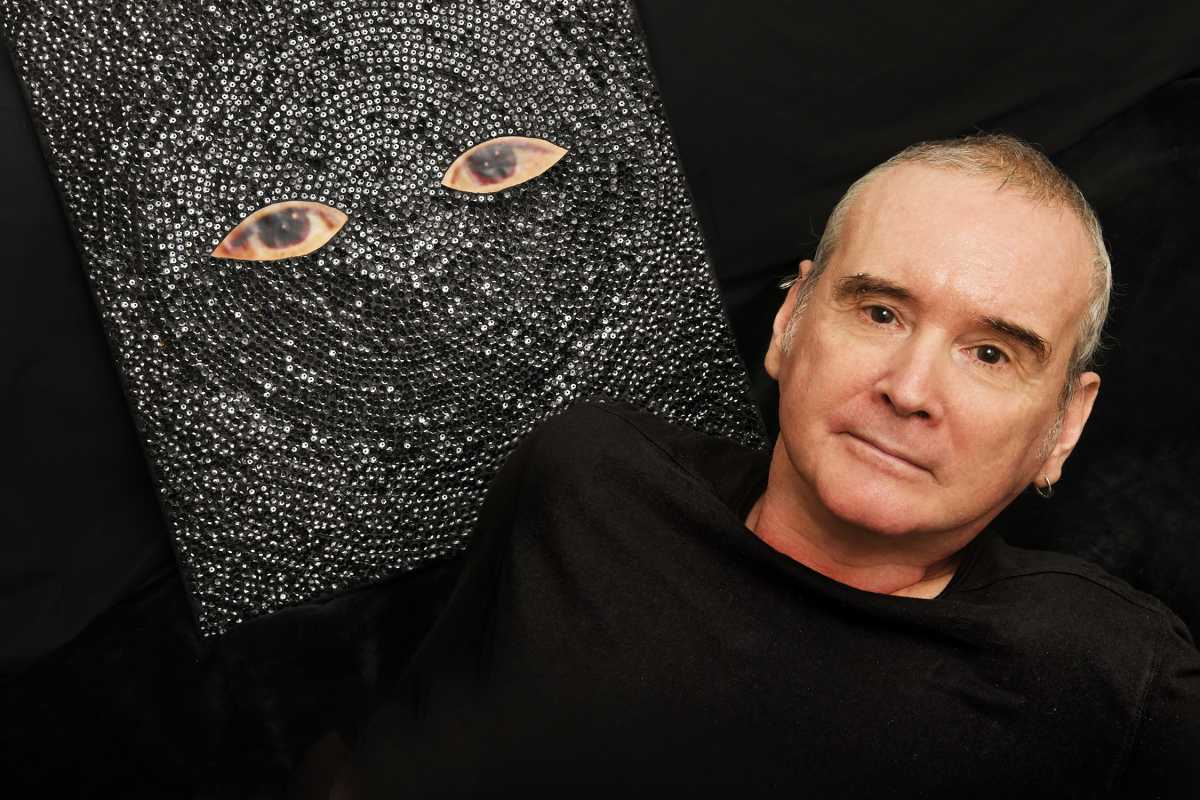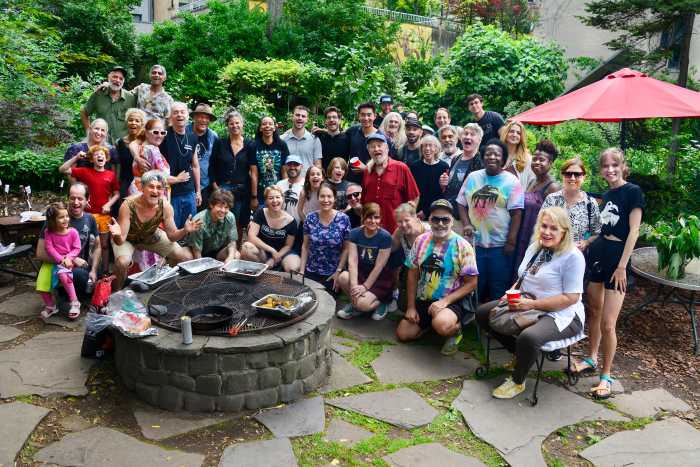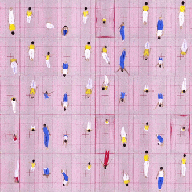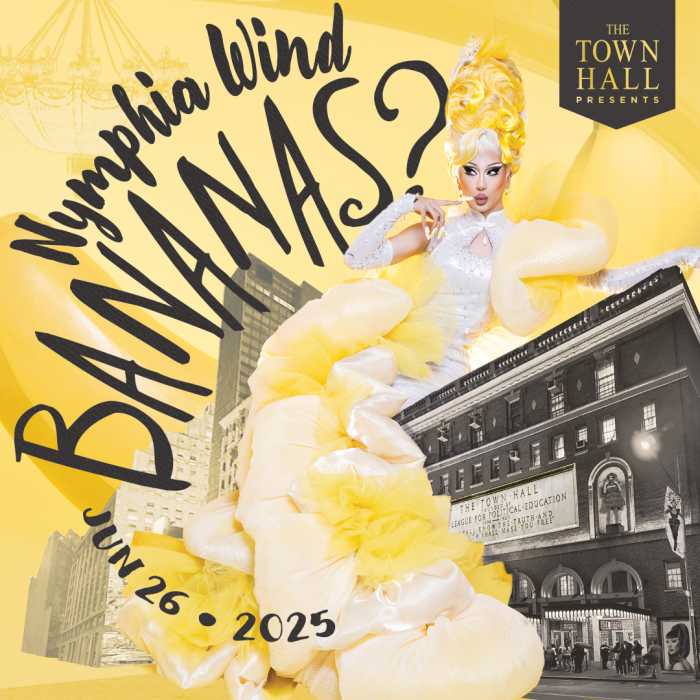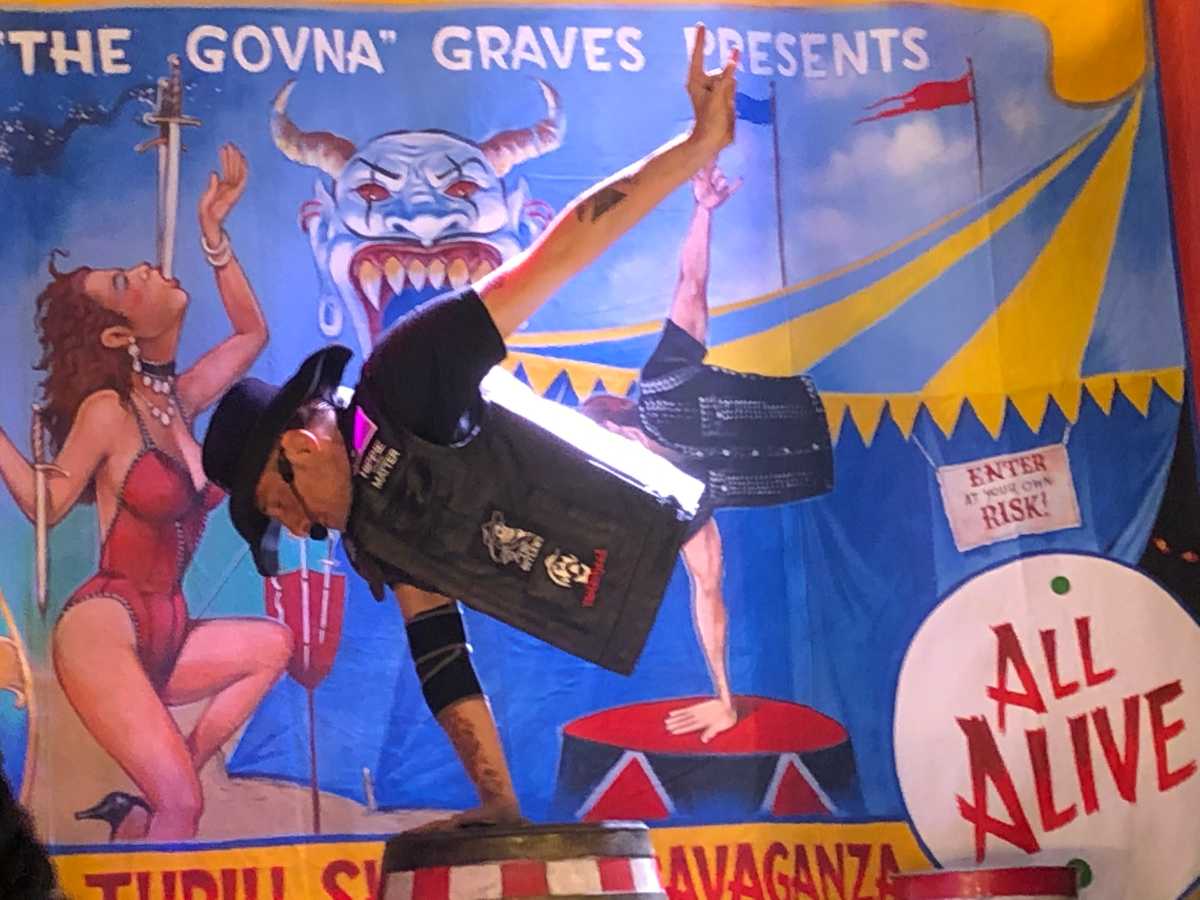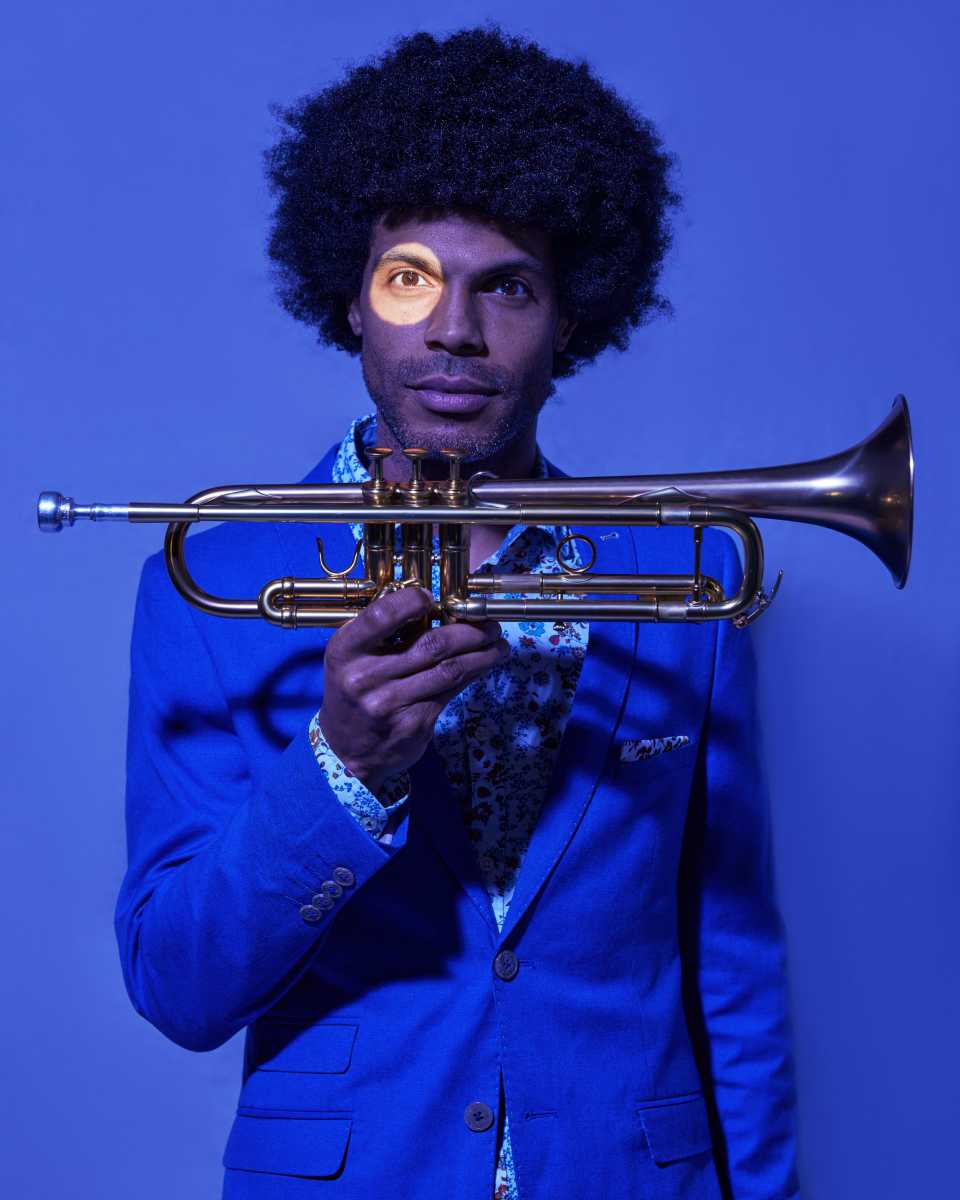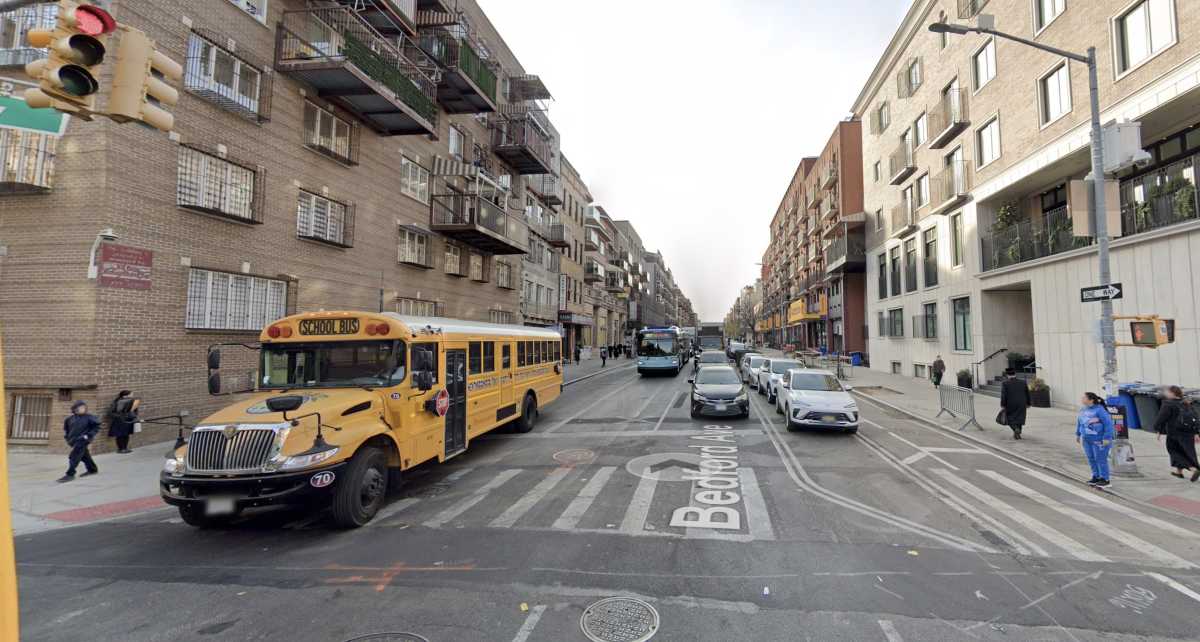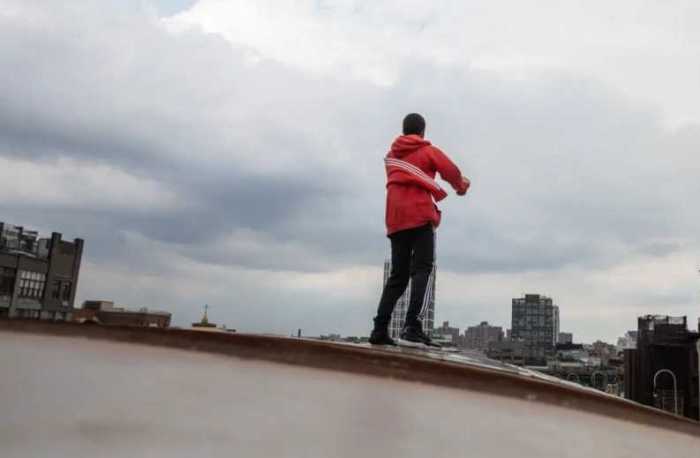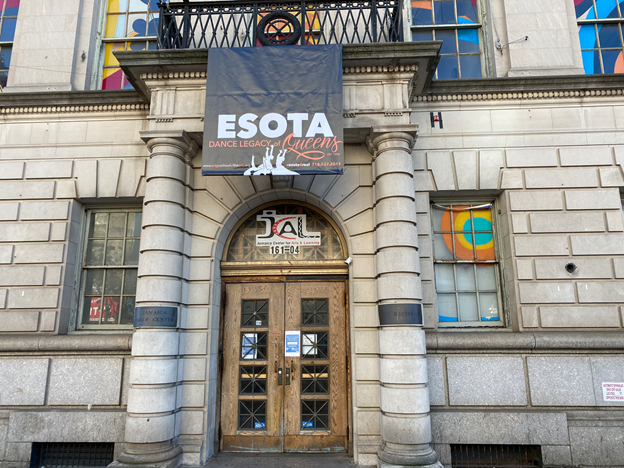No need to wonder where artist Jimi Dams is or what he’s doing – if it’s between 8 a.m. and 6 p.m. and a day that ends in “y,” he’s most likely in his East Village studio apartment, making art.
It’s what he’s done since he was six, when he was sent to a quasi-military-style boarding school in Mechelen, away from his Belgium home. Not interested in sports and lacking any friends there, Dams’ only spare-time companion was his art. Home life was non-existent as he lived at the school all year round, not returning home until the age of 15.
“I didn’t know how to do anything when I returned,” he recalls. “I had to learn how to cross the street.” And, he says, “I turned into a punk – I was very angry.”
The three clubs that he frequented — Cinderella, Neon and Dominoes — brought bands like Joy Division, the Birthday Party, Siouxsie and the Banshees and, for the first time, friends. “It was heaven to me – it was great that I grew up in that era.”
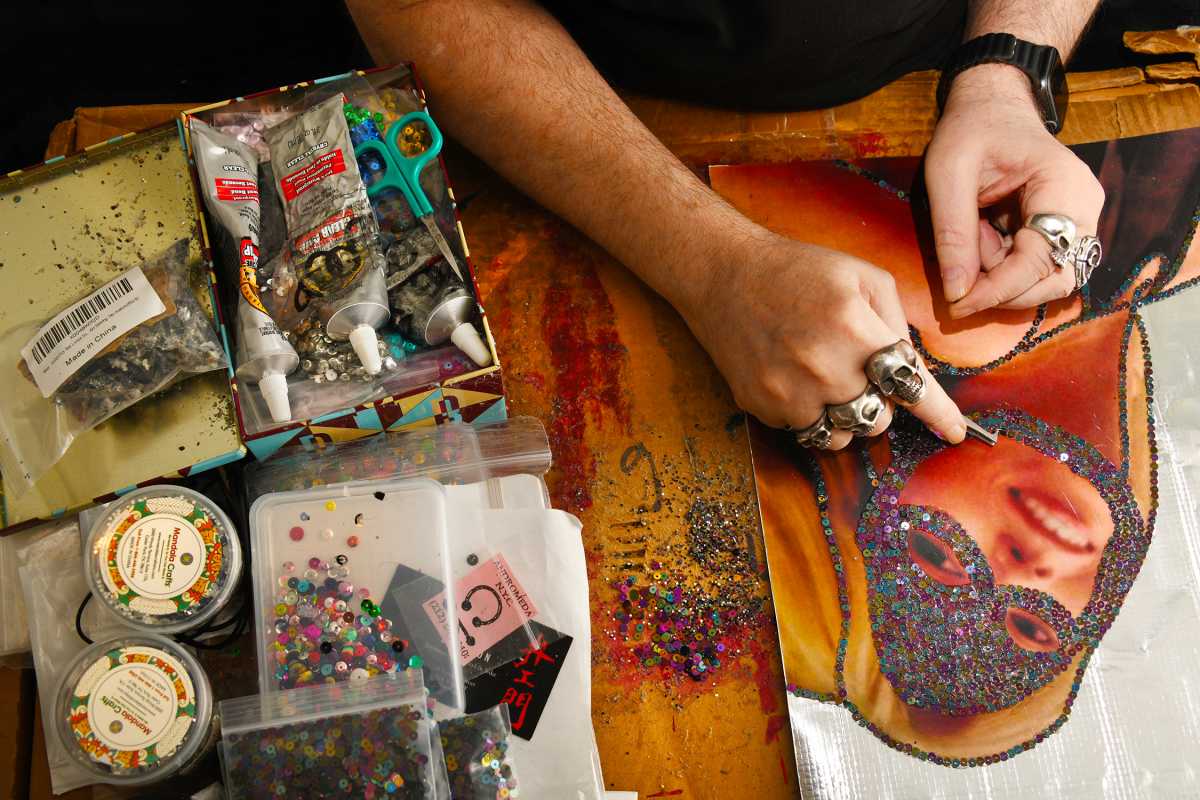
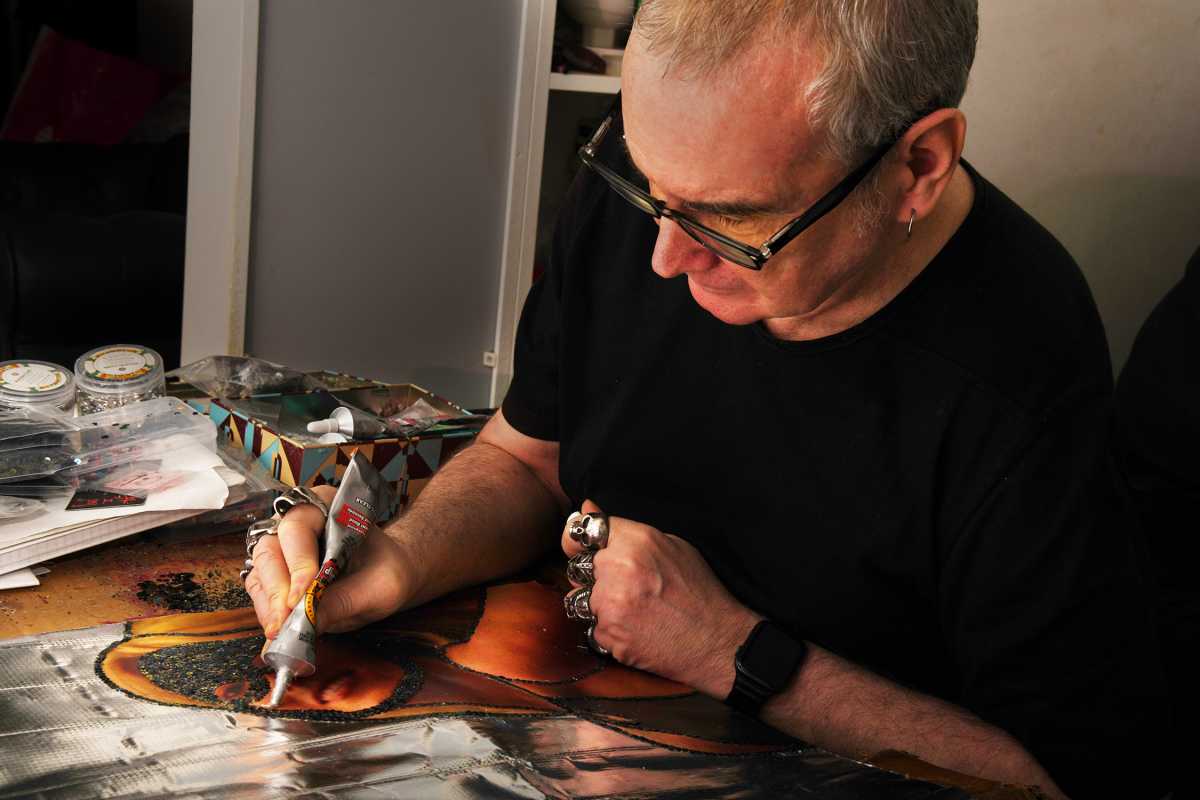
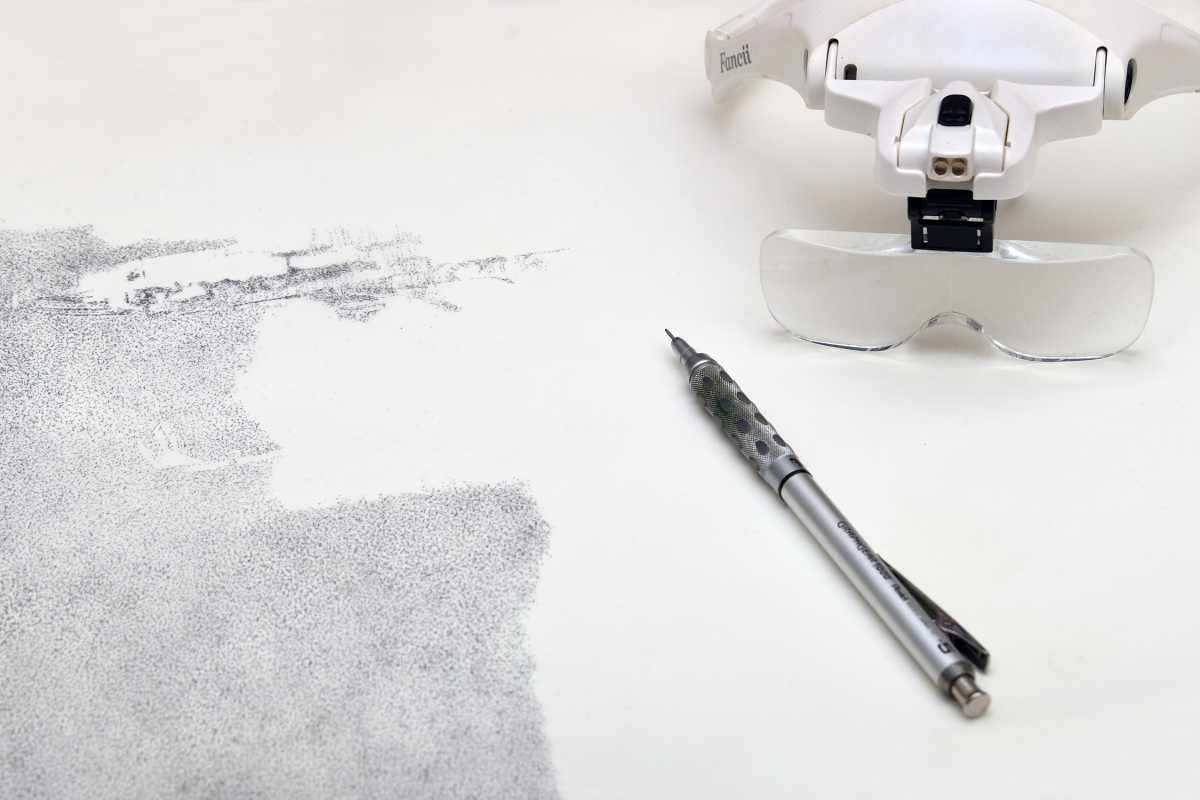
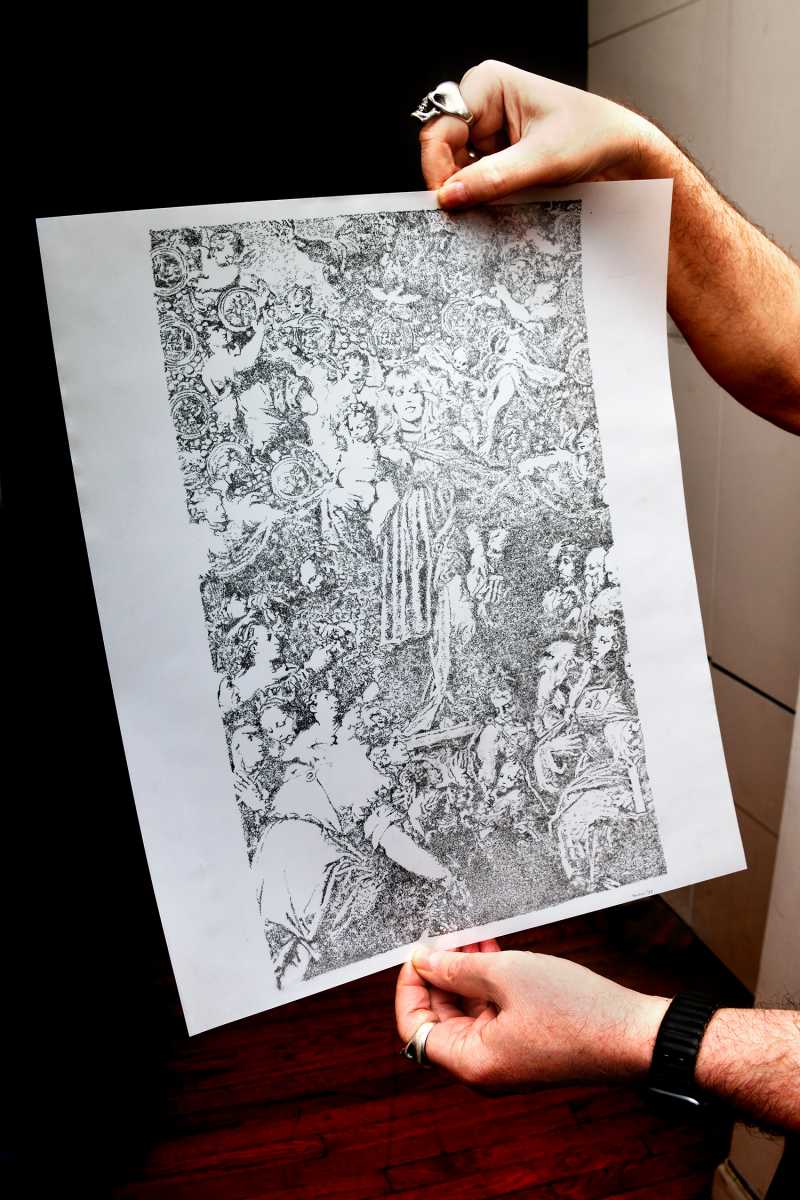
But home life was rough and, he says, “I kept running away from home, until I was eighteen and I could be on my own.” Dams continued making art and made an important connection when he met the gallerist Gracie Mansion on a visit to New York in 1992.
Flash forward to 1997, when he was very depressed and still in Belgium. “Gracie Mansion offered me a show and I realized that I could either go to New York and install the show or stay in Belgium and be committed.”
In the city, things began to evolve as Hudson, the founder of Feature Inc., gave him a job, which he stayed at until 2005.
“My mood changed in the new environment,” he says, and Dams flourished at Feature. Hudson encouraged him to open his own gallery, which led to him creating Envoy Enterprises in Chelsea. The gallery then moved to Chrystie Street, making it the first such business to move from Chelsea to the Lower East Side.
It then morphed into Empirical Nonsense, a space on Rivington Street that strove to be more about art than commerce. “In the beginning, it was still the art world,” Dams ruefully notes. “But then it became the art market.”
The space was closed in 2019 when the rent doubled, to $40,000 a month. Dams had been dealing with a tumor that wasn’t life-threatening but made it painful for him to draw when he was hit with another whammy — a double whammy, actually.
“I had two heart attacks in two months,” he recounts. “That sort of changed my perspective on things. I wanted to focus on things that I derived pleasure from and things that make a difference. I began to focus on my art again.”
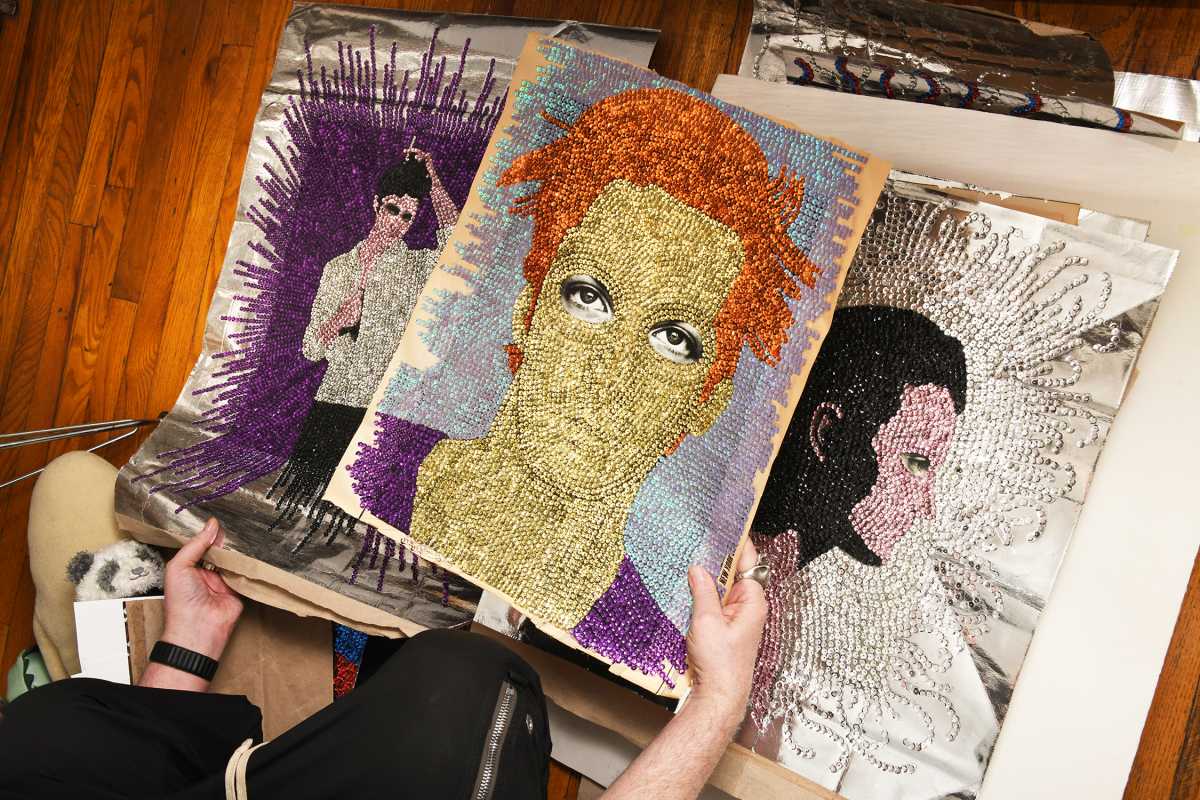
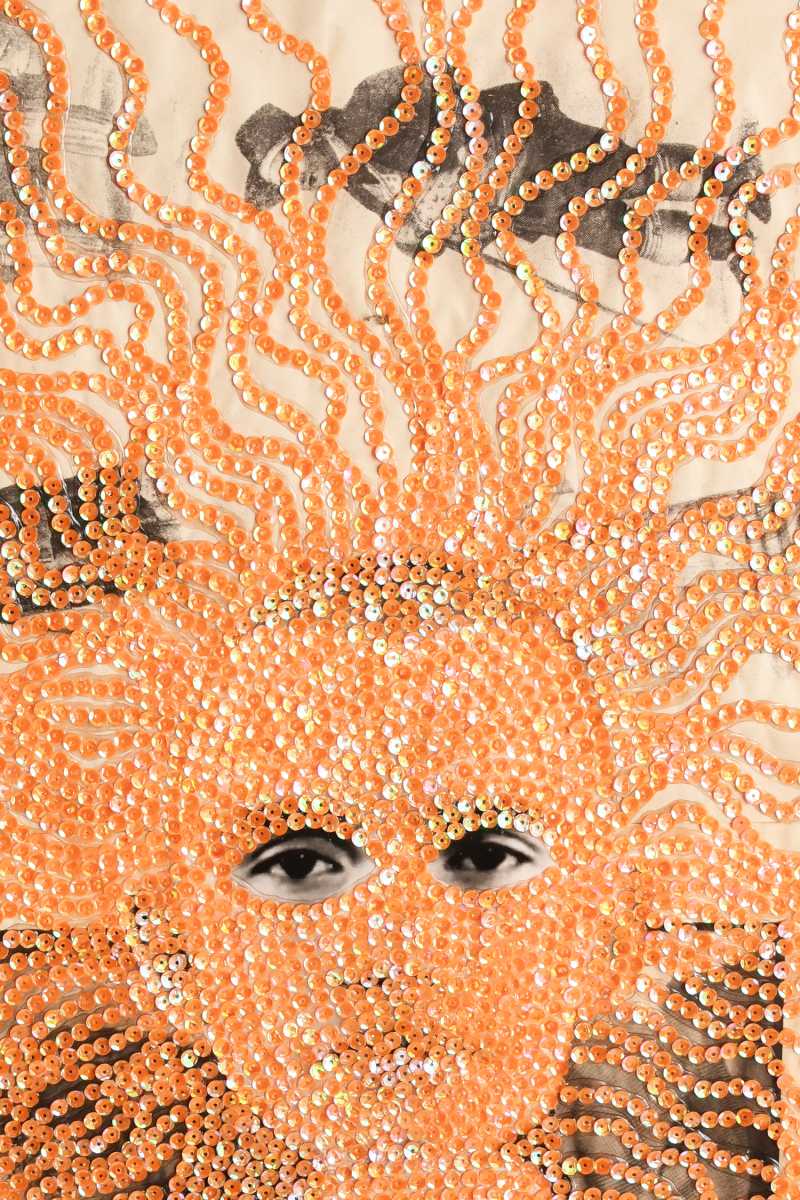
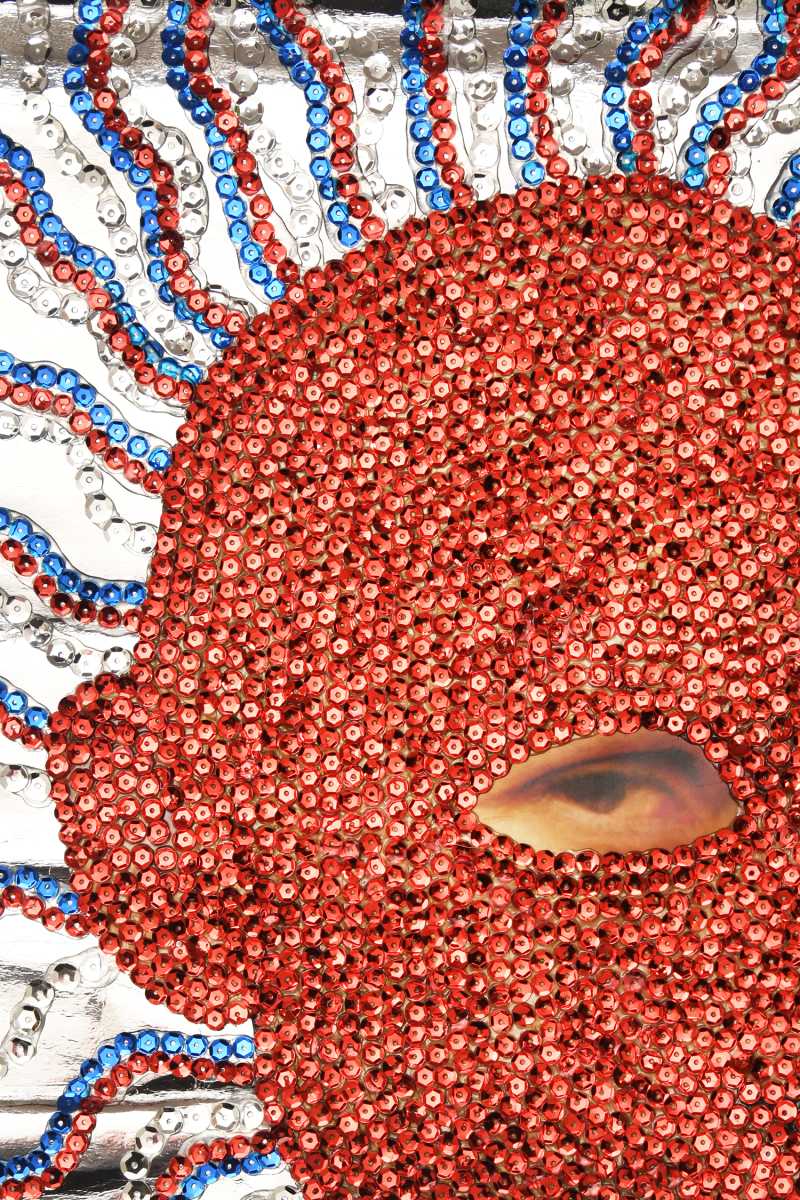
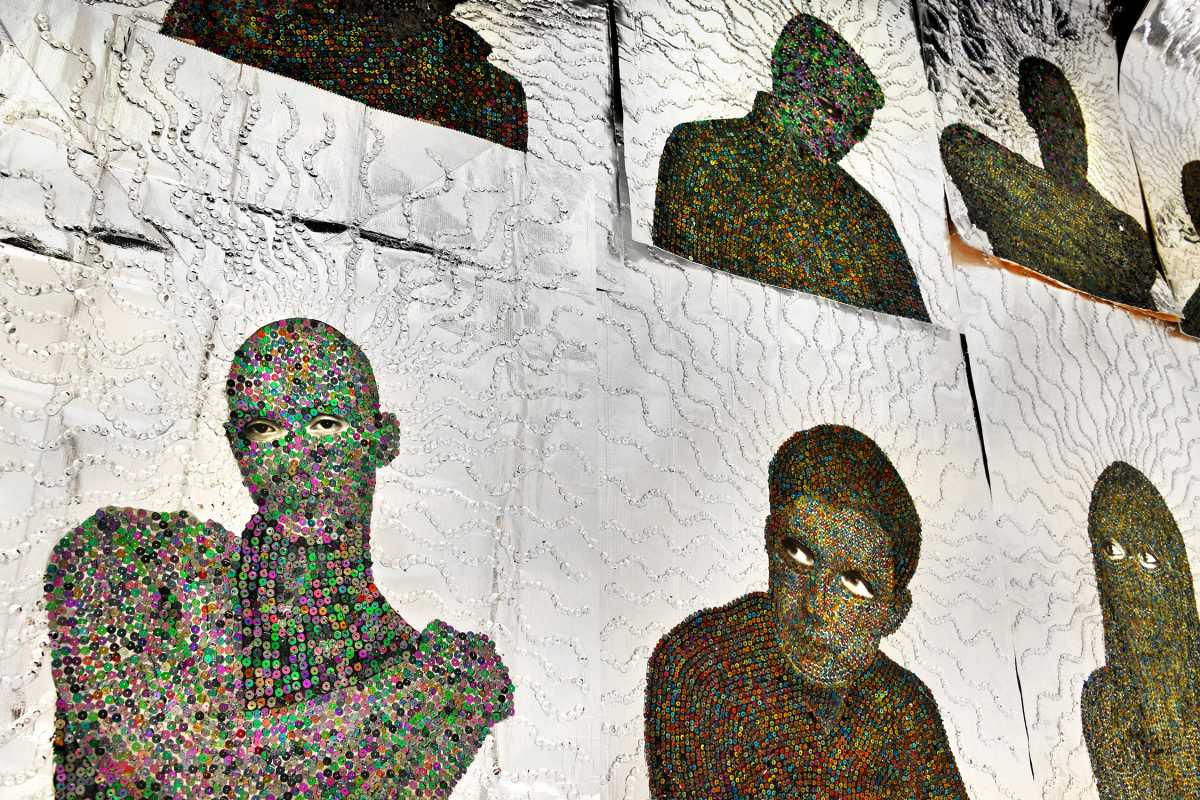
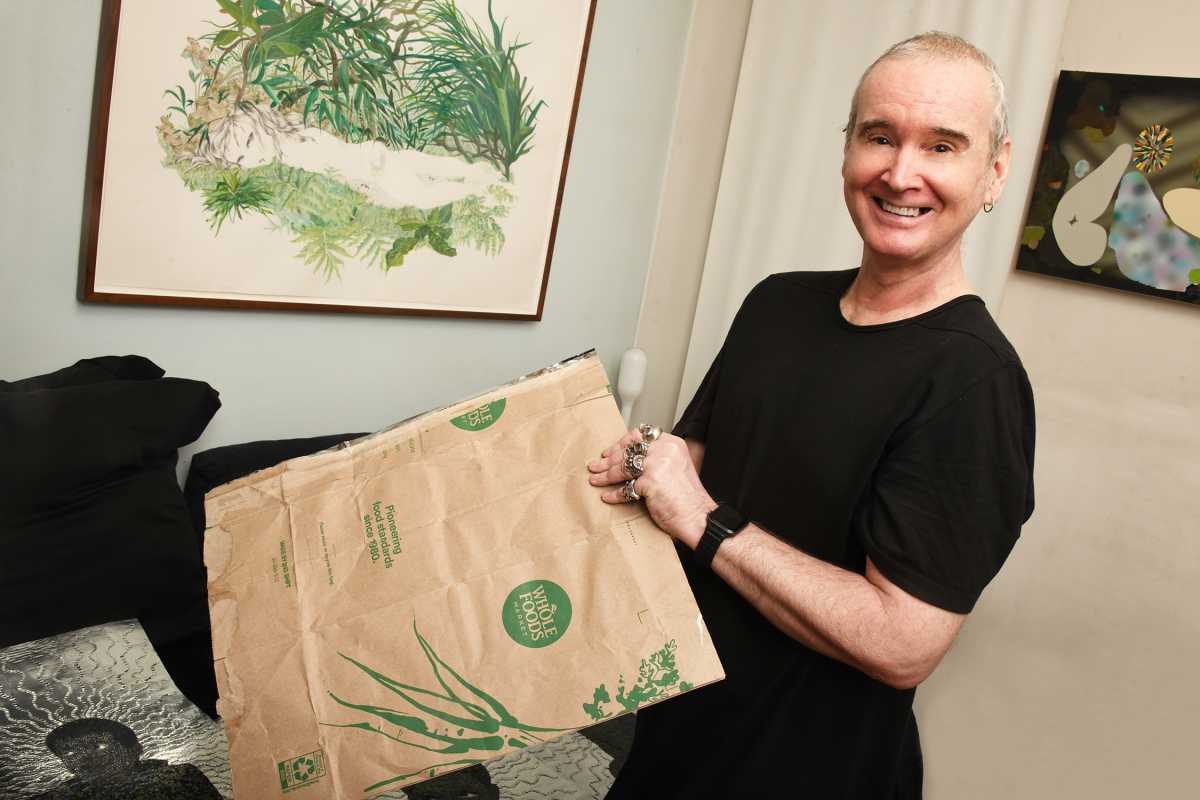
Dams had made almost no art for ten years at that point. He was a neo-pointillist, but his tumor made it difficult to draw for any length of time, so he returned to something that he had previously experimented with — sequins.
“The sequins to me are like the graphite on the paper, they are bigger, but they are still dots”, he explains.
As many as 5,000 sequins go into a single piece, which usually starts with the foil of a supermarket freezer delivery bag as a background and an image of one of his “muses” laid on top. The photos come from various sources, including older copies of “Interview” magazine.
Dams then painstakingly glues the sequins on top of that image, obscuring all but the eyes and creating intriguing new depictions that can be shiny and dark at the same time.
British choreographer Michael Clark is a frequent subject, as is Joy Division’s Ian Curtis and pop star/model Amanda Lear.
Dams’ art catches the viewer’s eye with its sparkle, but then invites one to go deeper and explore what is beneath the surface. To Dams, it is, he says, “basically very simple – it’s all about the human condition. It’s all about feelings – my darker feelings. I have a lot of doom and gloom in me, it has never left. I can make a dark piece or I can make a joyful piece, but that’s also a reaction to my gloom.”
The work is also a reaction to conceptual art, which he finds “over-intellectualized.”
“I want to bring more joy into people’s lives, particularly in Belgium,” he says. “I would like people to recognize something of themselves in my art, particularly people who have a dark mind themselves. They can look at my art and see that there is someone there that is the same and they can feel comfort and the fact that they are not alone. And for others, I hope that the sequins bring them joy.”
Jimi Dams can be followed on Instagram @jimi.dams. Purchase inquiries can be made through DM’s.



